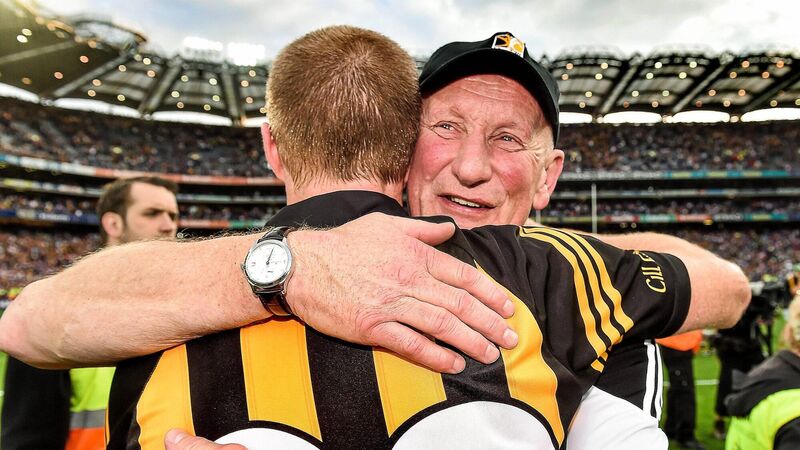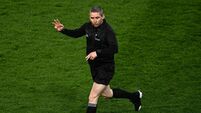Enda McEvoy: A front row seat to Kilkenny's past, present and future

Glory days: Kilkenny's Henry Shefflin, left, celebrates with manager Brian Cody after the game. GAA Hurling All Ireland Senior Championship Final Replay, Kilkenny v Tipperary. Croke Park, Dublin. Picture credit: David Maher / SPORTSFILE
The first time the officers of the Kilkenny county board began to view Henry Shefflin as management material was in the immediate aftermath of the drawn 2012 All-Ireland final. This is not as strange as it may sound.
After all, they’d been observing him in stripes for 13 years at that stage. Why worry about the dim and distant future, and a putative second life on the other side of the whitewash, when the present shimmered with days of silver and gold? A cat in the hand and all of that.








